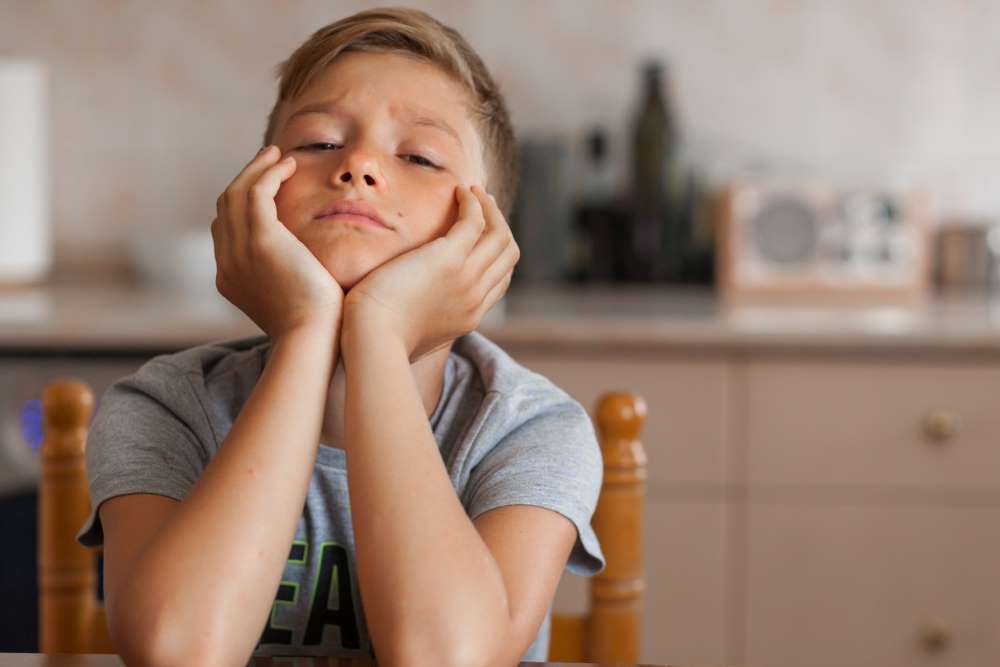
Science of preventing childhood loneliness
Amid Covid-19-induced isolation, parents worry that their children will be harmed by reduced contact with age-mates. But loneliness is not inevitable for socially distanced children. While they may complain vociferously about lack of playmates, it is actually parents themselves who either cause or prevent their children’s loneliness. But how?
True loneliness alters the physiology of all social animals, including humans. Triggered by being on their group’s periphery, it creates a state of hyper-vigilance, increasing arousal and threat perception and inducing fight/flight/freeze reactions even when there is no genuine danger. Evolution led to this response because, in the wild, those on the periphery are most subject to predation.
However, human loneliness is not caused by interacting with fewer people, and you can’t tell from the outside whether a person feels lonely. Your own family can be the loneliest place in the world, if you lack a warm, close relationship within it. And while playing with other children can be fun and developmentally beneficial, it is not essential.
Families, not peers, are the consequential social groups for children. Research shows that having a close, positive emotional bond with one primary caregiver who is “warm, firm, involved, sensitive to children’s changing needs and sets realistic standards and clear rules” protects children’s emotional health and resilience, preventing chronic loneliness. Correspondingly, it also parents who can engender it, for example by providing undivided attention when only scolding, rather than as a reliable reward for good behavior.
During adolescence, friends become more important, providing validation through deeply felt conversations and commiseration. Phone calls can therefore ameliorate loneliness for high school students. However, greater social media use has been shown to decrease self-esteem and increase depression and feelings of isolation in children and teens, so platforms like Instagram and TikTok can make things worse.
Unlike adolescents, young children typically don’t miss those who are absent. Parents often find that young children who protest vigorously when they depart for work or dinner out forget them almost immediately once they’ve left. This is because young children live entirely in the present and make the most of it (a state many adults try to achieve with meditation or mindfulness). But once parents reappear, the children get upset again, reminded of their erstwhile abandonment. Similarly, video and telephone contact with absent friends can actually magnify children's distress, kindling desire for in-person play without satisfying it.
Though playmates don’t prevent loneliness, they do provide experiences adults usually don’t, including feeling empowered, enjoying repetitive play, exploring forbidden ideas, and expressing worries, angers, and fascinations with others who share them.
Fortunately, caregivers can provide many of these benefits while staving off loneliness. The bad news is that it requires turning off phones, screens, and preoccupations to give children undivided attention.
The good news is that it doesn’t take much time. As a psychotherapist, I had 1 to 3 hours per week to help children and teens overcome loneliness so severe that their development had stalled. But how should those hours be used? Here are 5 steps parents can take at home to prevent loneliness.
1: Bedtime Rituals can give children what we all crave - reliable doses of undivided attention. Spend 10 to 15 minutes sitting on the edge of the child’s bed at a consistent bedtime, asking them to talk about their day: their worries, what was fun or interesting, what felt good or bad. Validating them with undistracted attention will give your children a sense of being supported and empathetically connected.
If there are several children in the household, put them to sleep sequentially, youngest first, so each one will get undivided attention. Ensure the home is quiet, with no music, TV, loud games, etc., so going to sleep doesn’t make them feel left out, on the lonely periphery.
2: Put Children in the One-up Position by encouraging them to point out adults’ mistakes, explaining that you need their help to improve. When they do (which they will), thank them, laugh, and be appreciative of the help - and remember to change your behavior accordingly. This is a valuable chance for them to be the ones who know better.
3: Mutually Pleasurable Repetitive Play. Parents can become playmates for 15 to 30 minute sessions. Recreate the experience of playing with age-mates by making mistakes and performing only about as well as the child, sitting or lying on the floor to match their height level. Follow children’s own etiquette by accepting every player’s contributions regardless of skill level, so play is fun and uninterrupted by performance anxiety.
Let the child choose what to do. Childhood play is often very repetitive, like hide-and-go-seek or peek-a-boo, and can include almost anything - making faces, building blanket forts, lining up soldiers, or dressing dolls.
Older children play games with rules, but constantly rewrite them as they go. They do not enforce grownup rules. Adults should do the same, rigging games to ensure children win most, but not all, of the time. This ensures experiences of empowerment instead of discouragement, which fosters loneliness.
The most important aspect of being a playmate is sharing enjoyment. If you can’t engage with real pleasure and focus, save it for another day. Children know instantly whether you are ‘into’ it and having fun.
4: Let Children Express Their Anti-parent, Anti-social Feelings. They often feel unjustly scolded, attacked, ostracized, teased, and humiliated. Sometimes these are correct assessments of what happened, and sometimes they’re attempts to restore damaged self-esteem. In either case, children need a safe space to speak about their feelings.
They also need to express their curiosity (about sex, human bodies, god, death, morality, and other people’s actions), and receive the same empathy children offer each other. Instead of judging, friends simply offer whatever information they have about the topic.
Parents should answer children’s questions honestly. Children need different kinds of information at different ages. Stay at the correct level by responding like an expert on the witness stand, only answering the exact question and providing no additional information.
When children express sadness, worry, or anger (even “I hate you!”), try to understand how badly they must feel. If we get angry or take offense, we will push children away and prevent them from reaching out again. Instead, help the child feel valued and heard by thanking them for trusting us enough to tell us their problems, so we can try to make their lives better.
5: Provide a Sense of Mastery by following Booker T. Washington’s insight: “Few things help an individual more than to place responsibility on him, and to let him know that you trust him.” This alleviates children’s sense of insignificance.
Children, from babyhood onward, are impelled to imitate and help older children and adults. This provides a sense of mastery, importance, and connection to group members. Children should be given small tasks that they can easily accomplish in just few minutes. These jobs should be ones children want to do, based on their interests, not those that parents want to avoid.
Children will not perform to adult standards, but should nevertheless be thanked for their contribution, reinforcing their sense of competence, rather than told how to improve. We all need an increased sense of mastery these days. Parents’ wellbeing is enhanced when they know they are helping their children. Children feel equally rewarded by making contributions to the family.
Everyone, parents and children alike, will benefit from spending just a bit of time every day focused on having fun together, and building warm connections by allowing children to share their feelings and questions, and receiving them with compassion. Even without school or in-person friends, parents can be everything their children need to escape the misery of loneliness.
---------------------
References:
One of dozens of studies showing the protective impact of Acceptance-Involvement Parenting is “Parenting Styles and Resilience” by Hamidreza Zaker, Bahram Jowkar, and Maryam Razmjoee.
For the best discussion of the causes and nature of loneliness, read John Cacioppo’s excellent book Loneliness: Human Nature and the Need for Social Connection.
To understand the origins and importance of cooperation, mutual problem solving and sharing, see Michale Tomasello’s book Becoming Human: A Theory of Ontogeny.
The impact of social media use on children and teens is explored in depth by Jean Twenge in her book, iGen.



























